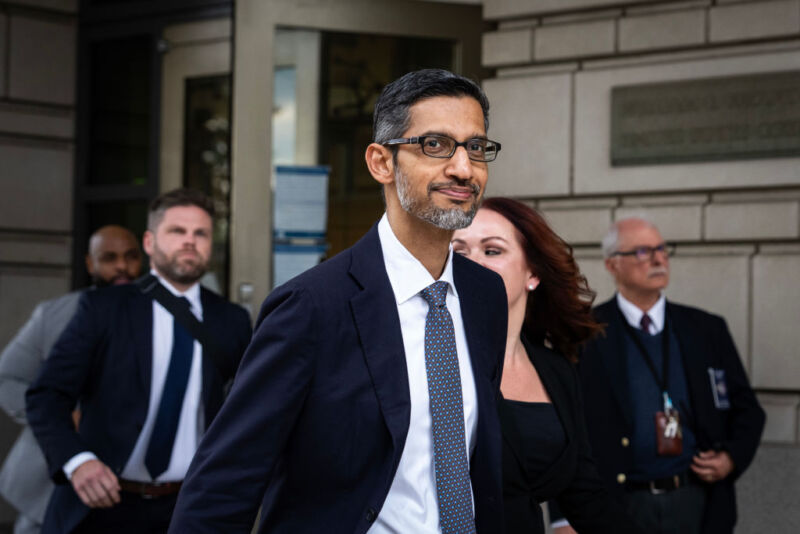
Google’s star witness in the Justice Department’s monopoly trial, Sundar Pichai, took the stand on Monday. The Google CEO finally admitted that his company pays as much as $26.3 billion annually to set its search engine as the default in browsers and mobile devices because those default placements can be “very valuable,” The Financial Times reported.
When “done correctly,” Pichai testified, these deals “can make a difference.” The Apple deal, Pichai said, is one such scenario because it “makes it very, very seamless and easy” for Safari users to use Google’s services,” The Wall Street Journal reported.
“We know that making it the default will lead to increased usage of our products and services, particularly Google search in this case,” Pichai said. “So, there is clear value in that and that’s what we were looking for.”
According to the WSJ, Pichai testified that Google understood the value of the Apple deal because the company “realized early on that browsers are critical to how people are able to navigate and use the web.” So naturally, Google expected that embedding Google’s preferred search engine into Safari’s browser would help keep Safari’s users engaged—a seeming win-win for both companies.
“It became very clear early on that if you make the user’s experience better, they would use the web more, they would enjoy using the web more, and they would search more in Google as well,” Pichai testified.
Pichai also discussed why its payments for default deals with Apple—which The New York Times reported amounted to $18 billion in 2021—appear so much larger than other similar deals that Google has struck.
According to CNN, Pichai acknowledged that “Google pays Apple more money in search-default payments than it pays to any Android handset maker for search distribution.” But Pichai said that “a big part of the difference” is that—unlike Android smartphone manufacturers and telecom carriers—Apple “is both the [original equipment manufacturer]” and has “control over their telecom channels,” which makes the payments to Apple “appear larger.”
The bulk of the Justice Department’s case against Google comes from millions of internal documents—a mountain of evidence that the government hopes shows that Google used these default agreements to block out competitors and harm consumers by locking them into a single search engine.
Pichai is Google’s most high-profile witness so far, and Google likely expects that Pichai’s testimony will impress upon Judge Amit Mehta—who is expected to make a ruling next year—that Google won default search placements by building the best search engine. So far, it’s unclear which way Mehta might be swaying, and whether testimony from executives from Google and Apple has been more persuasive than the DOJ’s stream of evidence and corresponding witness testimony from search competitors.

